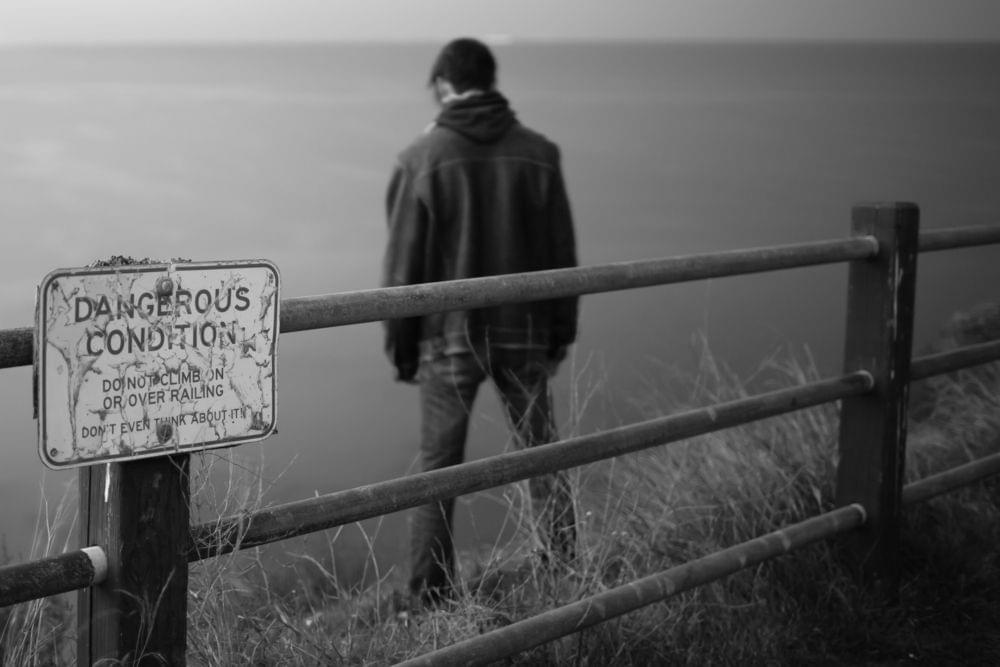

Being a parent is the hardest job that requires concentration and attention to detail. Preoccupied with numerous tasks, such as earning money and taking care of a healthy environment at home, parents can sometimes fail to interpret their kid’s emotional condition.
When teens express feeling sad, lonely, and hopeless, parents often mistake it for an ordinary drama that is so usual for kids of their age. However, such statements can be true signs of a suicidal child who struggles for help.
Table Of Contents
Shocking Teenage Suicide Statistics: Facts You Need to Know

“Tragically, suicide is the second leading cause of death among 15 to 29-year-olds,” says Tedros Adhanom Ghebreyesus, the World Health Organization Director-General.
Having increased by 35% since 2000, suicide rates continued to grow in 2021.
Here are a few more facts that can make you start taking the teen suicide problem more seriously:
- In 2017, the suicide rate for young people aged 15-24 reached the highest record ever — 14.46 per 100,000;
- 17% of high school students have seriously thought about suicide, while 8% failed their attempts;
- The rate of LGBT teen suicide is 5 times greater than for heterosexual youth.
Teen Suicide Warning Signs Parents Should Be Worried About
Teens are extremely fragile at their age and can easily find themselves in a vulnerable emotional state.
While adults may feel depressed because of a lack of support, difficulties in family relationships, or pressure from society, teenagers can easily consider that a good reason to commit suicide.
That’s why parents need to learn how to detect the most obvious signs of teenage suicidal behavior. Teens do not necessarily talk about death if they’ve decided to commit suicide. Parents can find it out from indirect hints, such as:
- changes in appearance;
- indifference to hygiene;
- increases interest in alcohol or drugs;
- the sudden decrease in grades;
- social isolation;
- expressing hopelessness and suicidal thoughts;
- neglect of safety;
- self-harm behavior.
If you have noticed any of the signs listed above, we recommend that you immediately book an appointment with a psychologist or contact a child suicide prevention organization.
How to Prevent Teen Suicide: 8 Things You Can Do Right Now

If you seek ways to prevent suicide in a teen, consider taking the following actions:
1. Talk about their mood
It’s natural that your child gets angry or feels depressed from time to time, as millions of factors influence a teenager’s inner state. However, if you notice anxiety, sadness, or fatigue more often, it can be a warning sign of suicidal thoughts in your child.
If you want to reveal the reason for your kid’s depressed mood, talk to them and discuss the problem.
2. Share your feelings
Teens believe they are all alone in this world and no one understands them. But don’t let your teen expand this thought. Talk about your fears and difficult moments in life. Tell them about your experience and the ways you overcame hard times.
3. Know the risk factors
Suicidal thoughts don’t appear in a teen’s head without reason. If your child thinks about it, he or she can be affected by any of the following conditions that increase the risk of suicide:
- Mental health disorders, such as depression or anxiety;
- Previous suicide attempts;
- Peer pressure and bullying;
- Family suicide records;
- Loss of a family member, friend, or partner;
- Domestic violence.
4. Don’t mistake the threat for drama
It’s no secret that teens tend to exaggerate their problems. However, a threat of self-harm mistakenly interpreted as an overstated emotional condition can be detrimental. So, if your teen threatens to kill themselves, it’s better to discuss the situation or contact a specialist.
5. Research the problem

If you’re not sure about your kid’s behavior, you can investigate the problem at teen suicide prevention organizations, such as:
- American Foundation for Suicide Prevention
- National Suicide Prevention Lifeline
- American Association of Suicidology: Directory of Support Groups
- Society for the Prevention of Teen Suicide
6. Promote positive activities
Teens are influenced by various kinds of emotions. In most cases, it’s up to parents whether young people will experience positive ones with their family or negative ones on their own. As a parent, you need to make a move and encourage your teen to go in for sports or family activities.
7. Make your home a safer place
If your family members own a gun or other weapons, make sure to restrict your kid’s access to it. Facts say that most youth deaths that involved firearms happened due to a gun belonging to someone in a family. If you need to leave a suicidal teen at home alone, make sure they don’t have access to weapons.
8. Monitor your teen’s online activity
As was noted earlier in this article, bullying and peer pressure can lead to depression that can result in suicidal behavior in a teen. As bullying occurs mostly on social media, parents need to consider monitoring their kids’ online activity. One of the options is installing a parental control app, such as mSpy, on their phones.
Conclusion
Preventing teenage suicide is a challenge for any parent. Primarily, it’s hard because even professional psychologists can’t detect the signs of the upcoming tragedy with a hundred percent probability.
However, parents can take a range of initiatives to help their kids overcome difficult stages in life. Monitoring their online activities is one of the ways to prevent teens from hurting themselves.
mSpy parental control app is designed to help parents to gain insight into their kids’ digital lives. The app can help detect cyberbullies and online predators and prevent teens from being harassed or abused.






Yes, online suicide game leads children to death, so what is the best method to avoid this? The best way is to install spy software for iPhone tracking of your kids, so you aware what your children are doing on iPhone.